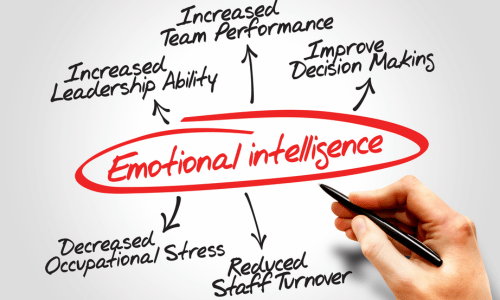
In the labyrinth of skills that define effective leadership, one trait emerges as both profound and pivotal: Emotional Intelligence (EI). This nuanced form of intelligence, transcending mere cognitive abilities, has emerged as a linchpin in the complex mechanics of leadership. The contemporary business landscape, marked by its relentless pace and intricate social dynamics, underscores the criticality of EI in steering teams toward success. This discourse aims to delve into the essence of emotional intelligence within leadership realms, charting its significance, navigating through the challenges it faces, and laying down a roadmap for its cultivation and mastery.
The Foundation of Emotional Leadership
Emotional Intelligence, as conceptualized in the seminal works of psychologists Peter Salovey and John D. Mayer, and later popularized by Daniel Goleman, encapsulates the capacity to recognize, comprehend, and manage our own emotions and to influence those of others. In the tapestry of leadership, EI acts as the thread that weaves together the social fabric of organizations, enabling leaders to motivate, inspire, and foster an environment brimming with trust and respect.
The relevance of EI in leadership is not just anecdotal but is backed by a plethora of studies. The research underscores that leaders who exhibit high levels of emotional intelligence are more likely to excel in their roles, achieving superior job performance, fostering higher employee engagement, and cultivating a positive workplace atmosphere. A notable study by the Harvard Business Review highlights that EI is the distinguishing factor that sets high performers apart in the echelons of leadership, accounting for nearly 90% of what differentiates them from their technically skilled counterparts.
Navigating the Challenges

Despite its recognized importance, embedding EI within the leadership framework of organizations is fraught with challenges. A prevailing barrier is the misconception that EI is an innate attribute, immutable and ingrained. This notion can stymie the willingness to engage in EI development, rooted in the erroneous belief that it is beyond one’s capacity to enhance.
The rapid, high-stakes environment of today’s business world often relegates EI to the back burner, with a myopic focus on immediate outcomes overshadowing the long-term benefits of emotional connectivity and well-being within teams. Furthermore, a lack of consensus on effective measurement and development methodologies for EI complicates its integration into organizational practices, leaving a gap in the standardization and benchmarking of emotional intelligence.
Cultivating Emotional Leadership
Addressing these challenges necessitates a multifaceted strategy, underpinned by a commitment to nurturing emotional intelligence at all organizational levels. Leadership development programs should be imbued with EI components, blending theoretical knowledge with practical applications, such as role-playing and coaching. Leaders should be encouraged to embark on a journey of self-discovery, through practices like mindfulness and reflective journaling, to enhance their self-awareness and emotional regulation.
An organizational culture that champions empathy is pivotal. By fostering open dialogue, encouraging the sharing of personal experiences, and demonstrating genuine concern for team members’ well-being, organizations can cultivate an empathetic ethos. Leadership should exemplify emotional intelligence, setting a precedent through their actions, thereby fostering an environment where EI is not just encouraged but lived.
The Horizon of Emotional Leadership

Looking ahead, the trajectory of emotional intelligence in leadership is poised to ascend. The evolving workplace, with its emphasis on collaboration, diversity, and mental health, further amplifies the need for emotionally intelligent leaders. While technological advancements, such as artificial intelligence, present novel avenues for assessing and developing EI, the quintessential human element—the authentic connection between individuals—remains paramount.
Leaders adept in the nuances of emotional intelligence are uniquely equipped to navigate the complexities of today’s business environment. They stand at the forefront of innovation, guiding their organizations with a blend of empathy, understanding, and strategic acumen. Embracing emotional intelligence transcends mere strategy; it embodies a commitment to a more humane, effective, and ultimately successful organizational ethos.
Emotional Intelligence in leadership is not merely an advantageous trait; it is indispensable. It differentiates the mediocre from the exceptional, underpinning performance, engagement, and a positive organizational culture. The path to integrating EI within leadership practices is laden with challenges, yet the outlined strategies provide a beacon. As we venture forward, the mastery of emotional intelligence will delineate the contours of effective leadership, fostering a workplace where empathy and success are inextricably linked. Embracing this paradigm is not just beneficial—it is imperative for the leaders of today and tomorrow.





